Migrant Worker Exploitation: The agencies picked by KL to blame
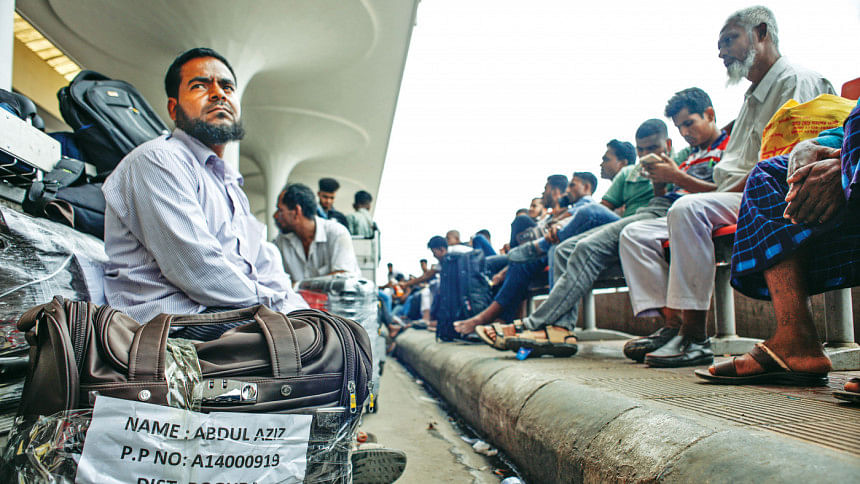
Dhaka wanted to allow all 1,520 licenced recruiting agencies to send manpower to Malaysia, but Kuala Lumpur selected only 101 agents, which industry insiders say are involved in manipulation and exploitation of migrants.
In response to a letter by four UN experts on March 28, Bangladesh's Permanent Mission to the UN in Geneva said Bangladesh and Malaysia signed a memorandum of understanding (MoU) on December 19, 2021, for labour recruitment.
In pursuance of the MoU, the Malaysian human resources ministry wrote to the Bangladesh's expatriates' welfare ministry on January 14, 2022, regarding selection of 25 Bangladeshi recruiting agencies.
In response, the expatriates' welfare ministry on January 18, 2022, wrote to the Malaysian ministry requesting it to keep the opportunity open for all the licenced Bangladeshi recruiting agencies.
"The hon'ble minister flagged that this open opportunity would ensure transparency and fairness compatible with the relevant International Labour Organization (ILO) standards as well as the Competition Commission Act, 2012, of Bangladesh," said the letter from Bangladesh permanent mission.
In a joint working group meeting on March 20, 2023, Bangladesh stressed the same request. In reply, Malaysia increased the number of recruiting agencies from 25 to 101 as per their choice and mandate, including state-owned Bangladesh Overseas Employment and Services Ltd, it added.
The issue of recruiting foreign workers in Malaysia came to the fore again as there have been numerous reports of joblessness, indebtedness and other forms of exploitation in Malaysia, which halted the foreign workers recruitment on May 31.
Between August 2022 and May 2024, about five lakh Bangladeshi workers went to Malaysia. UN experts in their letter to Bangladesh and Malaysia said the Bangladeshi migrants had to pay $4,500 to $6,000 as recruitment fees.
They even wrote about the bribes in recruitment process involving the Malaysian government officials, agents, and even Bangladesh high commission in Malaysia.
They called for measures to protect the thousands of Bangladeshi workers who face destitution and risk detention. They also enquired about the measures both the countries were taking regarding bilateral cooperation, policies, and investigations to improve the migrants' situation.
With none of the countries responding in 60 days, the UN Office of the High Commissioner for Human Rights made public the letters on May 27. Later, Malaysia's Permanent Mission to the UN in Geneva replied on May 28 and the Bangladesh mission the next day.
Among other things, Bangladesh mentioned how Malaysia played the role in selecting the 101 Bangladeshi recruiting agencies.
Recruitment industry insiders alleged that those who could pay hefty sums to leaders of the syndicate of 101 agencies were selected for the recruitment job.
The Bangladesh mission said the recruitment process and procedures had been agreed upon centred on an online-based system -- Foreign Workers Centralised Management System (FWCMS), which is developed and operated by the Malaysian government.
"As a result, there should be no scope for sending any Bangladeshi workers to Malaysia using false employment visas," the letter said.
According to Malaysian media, controversial IT company Bestinet is contracted by the Malaysian government to maintain the FWCMS.
Industry insiders said Bestinet President Aminul Islam Abdul Nor is a key figure behind the foreign workers' recruitment syndicate and manipulation.
The letter of Bangladesh to the UN experts says in the initial stage of the labour recruitment in August 2022, Bangladesh High Commission in Malaysia used to inspect the employer companies before attesting the job demand letters -- an exercise meant to verify the genuineness of the jobs.
Later, the high commission suspended the process as the Malaysian foreign ministry officially requested the Bangladesh mission not to conduct such company inspection saying the matter fell under the jurisdiction of the competent Malaysian authorities, the letter mentions.
In joint working group meetings, Bangladesh raised the issue of non-placement of newly migrated Bangladeshi workers and requested the Malaysian authorities to take necessary remedial actions.
The letter added that Malaysia's Department of Labour (DoL) has prohibited 48 employers from recruiting foreign workers, including from Bangladesh.
In the letter, Nadzirah Osman, Malaysian permanent representative to the UN in Geneva, said the DoL relocated 1,664 foreign workers in 2023 and 910 workers this year to new employers.
It said Malaysia restricted the entry of foreign workers in the formal sector since May 31 to close the loopholes of exploitation and allow the government to reassess the country's foreign workers' needs.
She reaffirmed Kuala Lumpur's commitment to protect the rights of migrant workers in the country.

 For all latest news, follow The Daily Star's Google News channel.
For all latest news, follow The Daily Star's Google News channel. 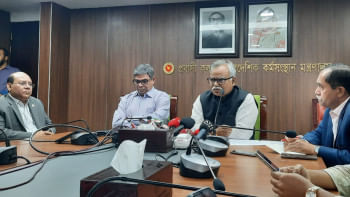



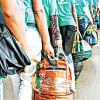
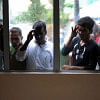
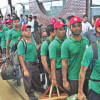


Comments